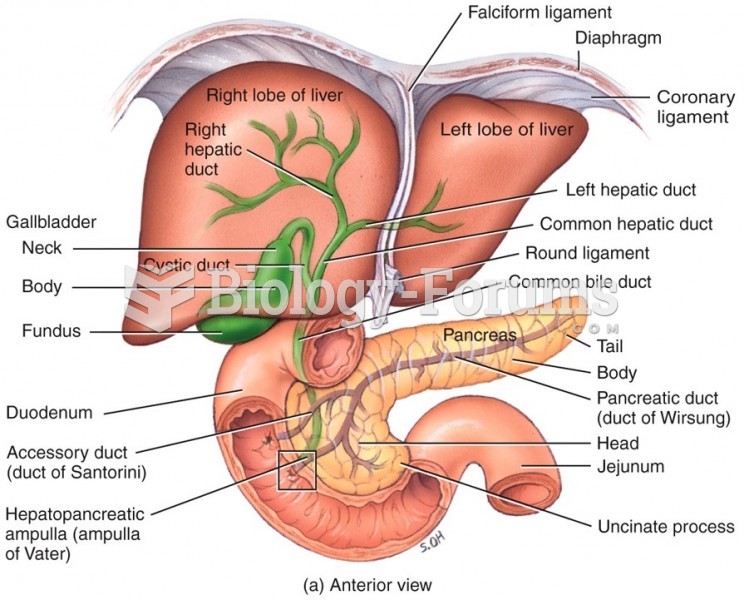|
|
|
Children of people with alcoholism are more inclined to drink alcohol or use hard drugs. In fact, they are 400 times more likely to use hard drugs than those who do not have a family history of alcohol addiction.
To combat osteoporosis, changes in lifestyle and diet are recommended. At-risk patients should include 1,200 to 1,500 mg of calcium daily either via dietary means or with supplements.
The calories found in one piece of cherry cheesecake could light a 60-watt light bulb for 1.5 hours.
All adverse reactions are commonly charted in red ink in the patient's record and usually are noted on the front of the chart. Failure to follow correct documentation procedures may result in malpractice lawsuits.
Women are two-thirds more likely than men to develop irritable bowel syndrome. This may be attributable to hormonal changes related to their menstrual cycles.
 Photo of the neck of a patient with non-Hodgkin’s lymphoma showing the swelling associated with enla
Photo of the neck of a patient with non-Hodgkin’s lymphoma showing the swelling associated with enla
 First-pass effect: (a) drugs are absorbed; (b) drugs enter hepatic portal circulation and go directl
First-pass effect: (a) drugs are absorbed; (b) drugs enter hepatic portal circulation and go directl
 (Left panel) The transition level (TL) for moving out of the parental home for 240 young men and ...
(Left panel) The transition level (TL) for moving out of the parental home for 240 young men and ...




